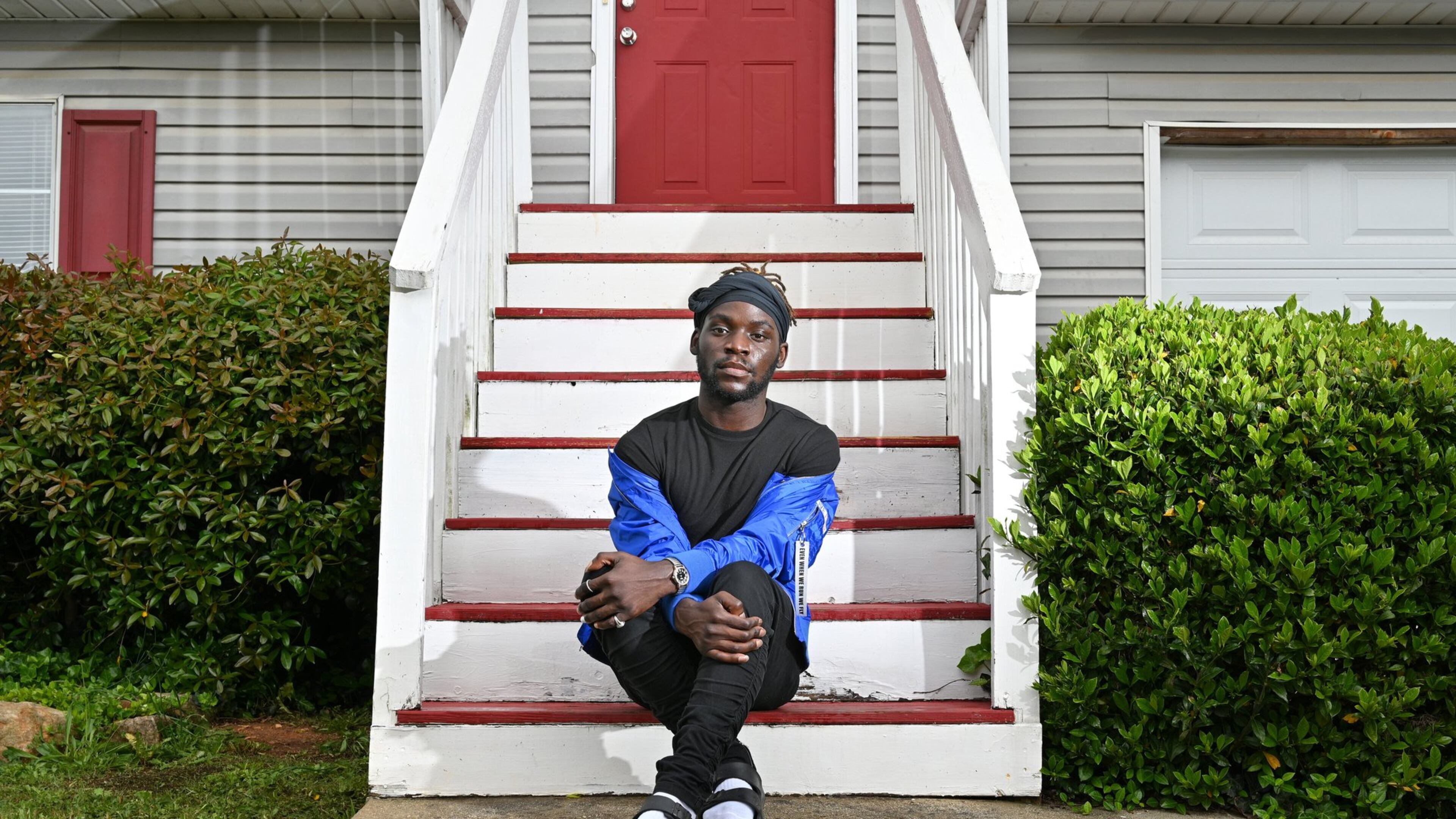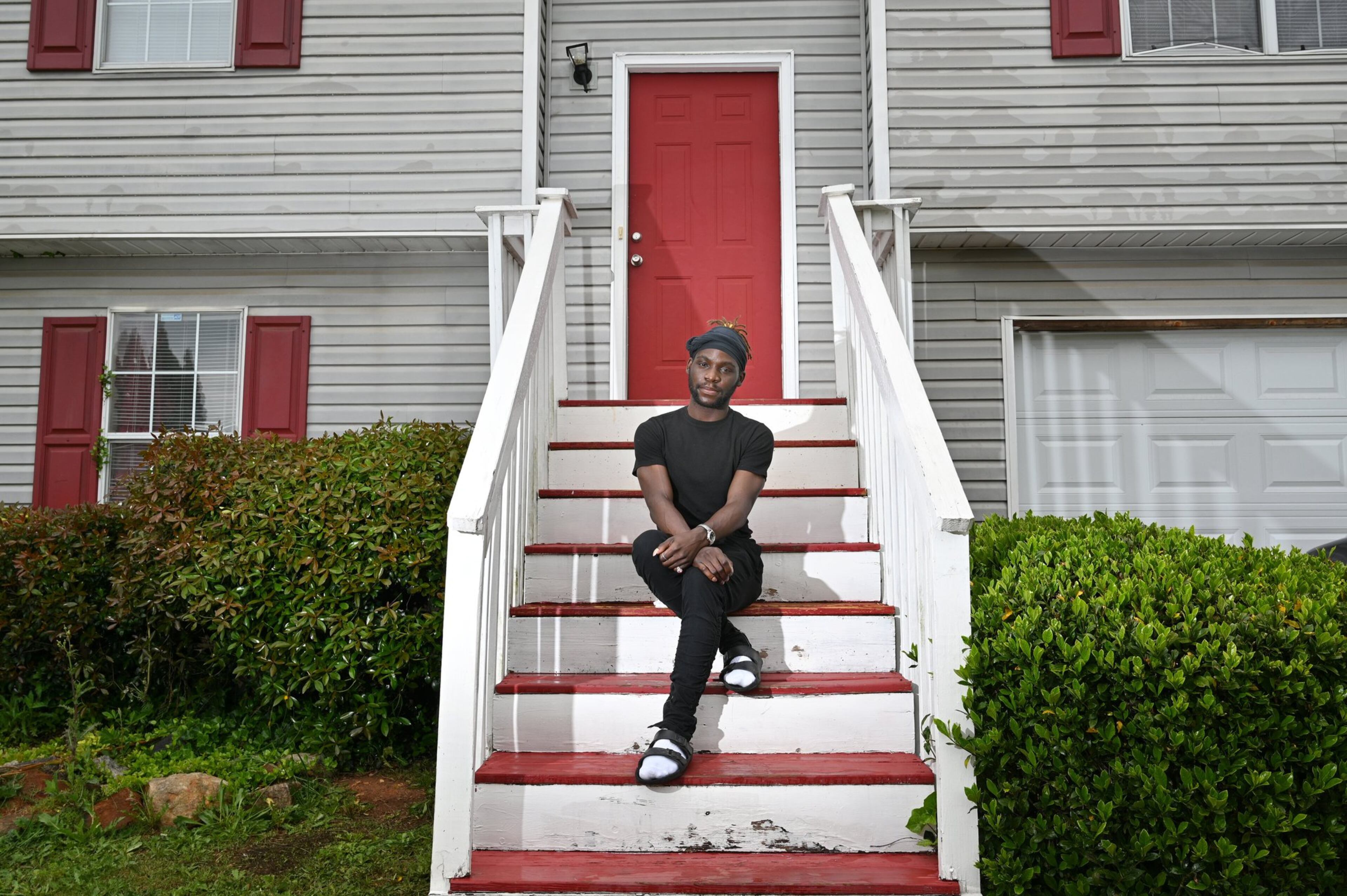HUD: Atlanta fails again to properly run homeless HIV program

In the past 15 years, Arielle Anderson has slept in motels, her sister’s home and on the streets of downtown Atlanta.
There aren’t a lot of options for a formerly evicted, transgender black woman with HIV who makes about $350 a week.
Now, for the first time as an adult, Anderson sleeps in the same bed each night. But the funding that put her in that bed is in jeopardy of being cut off.
Anderson’s lifeline is a federal program administered by the City of Atlanta, which received a scathing letter in February from the U.S. Department of Housing and Urban Development threatening to cancel the $23 million grant meant to help people with AIDS pay their rent.
PAST COVERAGE | Leaked memo shows depth of dysfunction in Atlanta's AIDS housing crisis
HUD officials say an investigation revealed chronic mismanagement and a persistent lack of financial controls in Atlanta's stewardship of the grant. The letter also said the city has a deeply rooted inability to adhere to the federal grant guidelines.
Atlanta’s “failure to comply with the terms of these specific grant conditions may result in HUD pursing termination,” the letter said.
Losing the grant would be devastating to people throughout the region, which has the third-highest rate of new HIV infections in the country. The grant funds are dispersed to 2,300 households in 29 metro Atlanta counties.
“What I see with the collapse of these grants would be, quite literally, people with HIV dying,” said Dr. Melanie Thompson, a three-decade AIDS researcher and current head of Fulton County HIV Advisory Committee.
The theory behind the program is that the spread of AIDS can be slowed by providing stable homes to the vulnerable population.
The Housing Opportunities to Persons With AIDS grant program gave Anderson, 33, enough stability to earn an associate’s degree in childhood education. She hopes to become a social worker.
HOPWA covers all but $21 of Anderson’s share of the $900 rent she splits with a roommate.
Without the grant money, Anderson said she would be living in her 2012 Nissan Altima. She’s afraid of moving back in with her mother, who hasn’t seen her since she transitioned to living as a woman in 2009.
“It would be a very uncomfortable situation,” Anderson said.
HOPWA committee member: ‘In shock and extremely upset’
The Feb. 4 letter imposes strict conditions on the city for this year’s award, including a requirement of sworn statements that acknowledge criminal liability for knowingly providing false information to HUD.
City officials initially resisted disclosing the letter to its own HOPWA Advisory Committee, created by Mayor Keisha Lance Bottoms to recommend uses for the grant money.
Bottoms’ administration released the letter only after receiving a public records request for the document.
A spokesman in the mayor’s office said city officials are confident Atlanta will meet all requirements to retain the grant.
“The City has met all of the required timelines and milestones for the special conditions,” the spokesman said in a statement. “We are working closely with HUD to close out all of the special conditions.”
Leaders of several non-profit organizations that house people in the HOPWA program said they only learned of HUD’s threat during a teleconference last week.
READ | Ongoing crisis in Atlanta program keeps those with AIDS/HIV homeless
Larry Lehman, CEO of Positive Impact Health Centers, sits on the mayor’s advisory committee and said the city owes his organization $1.9 million in reimbursements from HOPWA grant funds.
“I feel most of us left the meeting last night in shock and extremely upset,” Lehman wrote in an email.
Atlanta has become known as the south’s bastion for African Americans who identify as LGBTQ+, the group most impacted by HIV/AIDS.
And the loss would come at a historically scary time for immuno-compromised people, whose weakened respiratory systems are especially vulnerable to COVID-19.
Shaquille Gordon, 26, got into HOPWA-funded housing just before the coronavirus shut down many services. The aspiring wedding planner is working a fast-food job, and tries not to live in fear of the virus.

Gordon said his landlord, Michael Banner, doesn’t bother tenants with concern over the potential of lost funding.
“If you put that kind of information into the atmosphere of people who are struggling with drugs, that will make us guys here panic and … lose our minds,” Gordon said.
Banner, deputy director of the nonprofit Here’s to Life, said working with the city isn’t always easy.
“I have a level of frustration with the reimbursement process and timeliness of it,” Banner said. “I think people are suffering as a result of these shortcomings.”
The city's problem with administering the grant took root over the past decade, with a revolving door of grant managers.
“Atlanta is known nationally to have a significant problem in administering the HOPWA funds,” said Peter Toepfer, vice president of housing for the AIDS Foundation of Chicago.
The grant funds flow from HUD to the city, which then disperses it to dozens of organizations that secure housing and subsidize payments for households — including families — affected by HIV.
Over the years the city has delayed payments, forcing agencies to take out loans so their clients avoid eviction.
According to the letter, HUD made Bottoms’ aware of the issues soon after she was sworn into office in 2018.
Charles Stadtlander, who was Bottoms’ senior campaign advisor on LGBTQ+ matters, said he regularly informed her that problems with the grant were the gay community’s most significant concern.
Stadtlander said the HUD letter is discouraging because Bottoms made fixing the grant administration a campaign promise.
“Claiming to be an ally for people with HIV and AIDS takes more than words,” said Stadtlander, who spent five years on AIDAtlanta’s board. “It takes action. There is no excuse for this.”
‘Gross inadequacies that require resolution’
Agents with HUD’s Departmental Enforcement Center (DEC) visited Atlanta in November 2019 to assess the city’s stewardship and found “gross inadequacies that require resolution.”
HUD cited a pattern of poor grant management, which included inadequate financial management, inaccurate reporting and a lack of oversight of the agencies providing the housing.
The city also failed to provide accurate guidelines to sponsors resulting in some households overpaying their rents. Now HUD is requiring the city to identify and reimburse that money.
HUD said in the letter that Atlanta failed the program in other ways: It found no evidence that the city followed through on its promise to provide credit monitoring to 6,000 grant recepients after a data breach.
Until June, HUD had provided more than 1,000 hours of technical assistance to the city, but cut off the help after seeing no improvement.
“Jiminy Christmas,” said the city of Cleveland’s HOPWA specialist Jeannie Citerman-Kraeger after reviewing the letter. “I don’t understand how this got so out of hand.”
READ | Embattled HIV housing program to lose 60% of its federal funding
Citerman-Kraeger said she’s never seen anything like the letter in nearly three decades of grant management. She has managed Cleveland’s roughly $1.5 million in annual HOPWA funds for the last 2 1/2 years.
“If this kind of stuff is sent, this means, oh boy, you’re probably going to lose your funding,” she said.
It’s unlikely that HUD would totally pull out of metro Atlanta because the need is so great, said Toepfer, whose Chicago organization has a contract to administer the funds there.
“They’re not going to remove the HOPWA funds from the overall area, but they could change who is the grantee,” he said.
Councilman Antonio Brown, who chairs a City Council subcommittee on HOPWA said newly hired grants manager P. Nigel Roberts has significant experience with the program.
The mayor’s office declined to make Roberts available for an interview. But in February, the administration moved management of federal grants under a single department to better track compliance.
A provider who spoke on condition of anonymity, because the city owes the organization money and the person is fearful of political retribution, told the AJC that more than a dozen HIV-positive people will need new housing next month if the city doesn’t provide the grant money.
“All of my funds are hostage to the process,” the provider said.
Follow | The Atlanta Journal-Constitution on Facebook and Twitter



